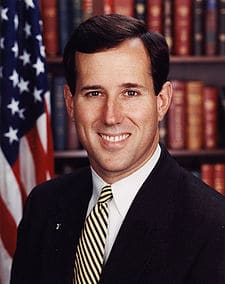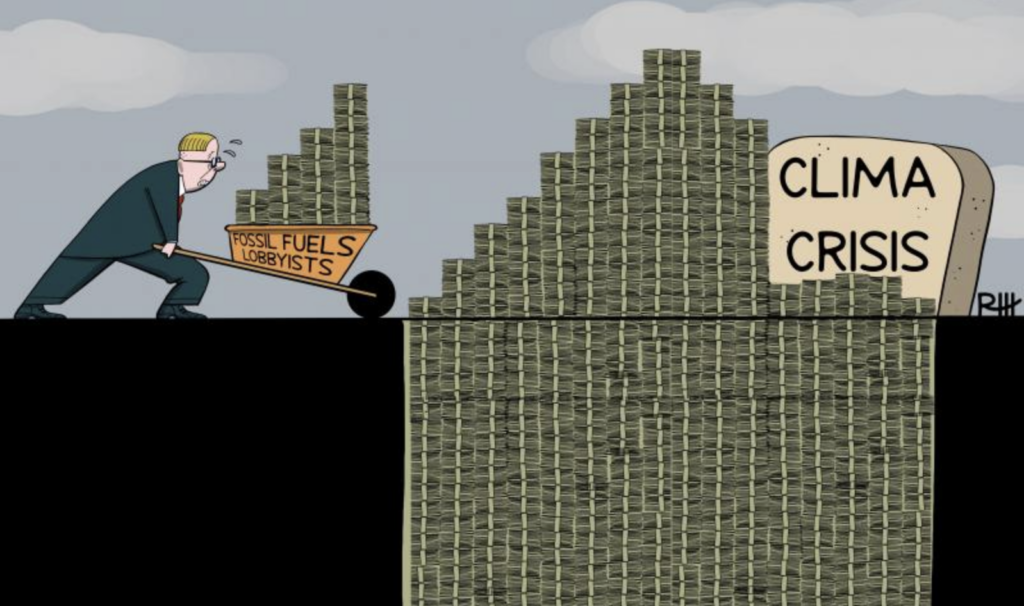Rick Santorum has been talking about the “politicization of science” a lot lately—although (a pet peeve of mine) he seems to have a problem with pronouncing the phrase. He says “polititization.” Check it out here.
Not as bad as the people who say “political-ization,” but don’t get me started.
Anyway, this is part of a broader narrative Santorum has woven, one in which the left wants to misuse science in order to exert control over you and quash your freedoms. This is particularly apparent in Santorum’s recent CPAC speech, where he once again hints at a climate conspiracy theory: Global warming was made up to help leftists take control of the global economy.
In another recent speech in Oklahoma, meanwhile, Santorum said similar things but made a point of asserting that Republicans are not the ones politicizing science. “You hear all the time, the left: ‘The conservatives are the anti-science party,’” Santorum said. “No. No we’re not. We’re the truth party.”
Well, actually, the data clearly show that Republicans distrust the scientific community more than Democrats do, at least on environmental issues. They really are more “anti-science,” at least when the term is defined in this manner—based on trust in the scientific community.
Nevertheless, I understand what Santorum means.
He means that he and his fellow Republicans don’t feel any deep aversion towards scientific inquiry in general, and don’t think of themselves as anti-science—they’re just calling out bad science in one particular area. And I fully acknowledge that this is what they think they are doing.
However, Santorum’s own manner of speaking about the climate issue—in a black and white way, where the leftists (bad guys) have made up phony science to dupe average Americans (good guys)—gives away the game. So incidentally, does his very confident use of the word “truth.”
Global warming is nothing if not a complicated issue—one with scientific aspects to it (across multiple disciplines) but also economic aspects, policy aspects, geopolitical aspects, ethical aspects, and so on. For all of these reasons, it cannot possibly be understood without some sense of nuance, and some appreciation of scientific (and economic) uncertainty.
This uncertainty, properly understood, does not make us less worried about global warming. Rather, it makes us more worried—we don’t know how bad it is going to be, but we know it could be very, very bad.
Appropriately, the scientists who study the climate are trained—and often, temperamentally disposed—to see the world in gray, rather than black and white. That’s what makes them good at catching mistakes and incorrect interpretations—they’re not too sure of themselves. In the scientific community, nobody proclaims to have suddenly discovered “the truth”; rather, knowledge proceeds incrementally, and everything has error bars around it.
So the idea that Santorum can look at a complex topic like this, proclaim that he knows the “truth” about it, and on top of that also proclaim that all the scientists who study the climate are not only flat-out wrong, but actually involved in hoaxing or duping us…well.
If Santorum were really so interested in truth, we can be confident he would not be so sure of himself–especially not in holding such a far-fetched belief.
“Truth party,” then, isn’t very accurate. Truth, in science, is only approach incrementally, and uncertainty can never be fully dispelled.
No, it would be better to call Republicans (especially the Republicans to whom Santorum appeals) the “certainty party”—certain that they’re right, and environmentalists/liberals are wrong. Certain, even, that their political enemies would make up the science if they had to, in order to grasp for more power.
Hence Santorum’s repeated recourse to the climate conspiracy theory.
Now, in fairness, certainty works in politics. It gives people confidence in strong leaders. It imparts an aura of decisiveness and control.
But it is also extremely dangerous—and never more so than when you’re wrong.
Subscribe to our newsletter
Stay up to date with DeSmog news and alerts







